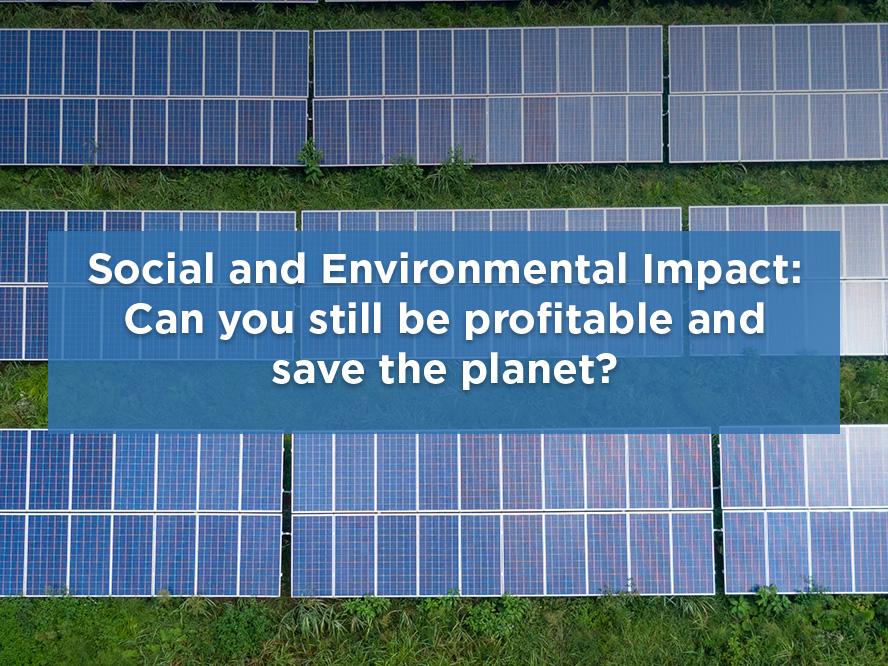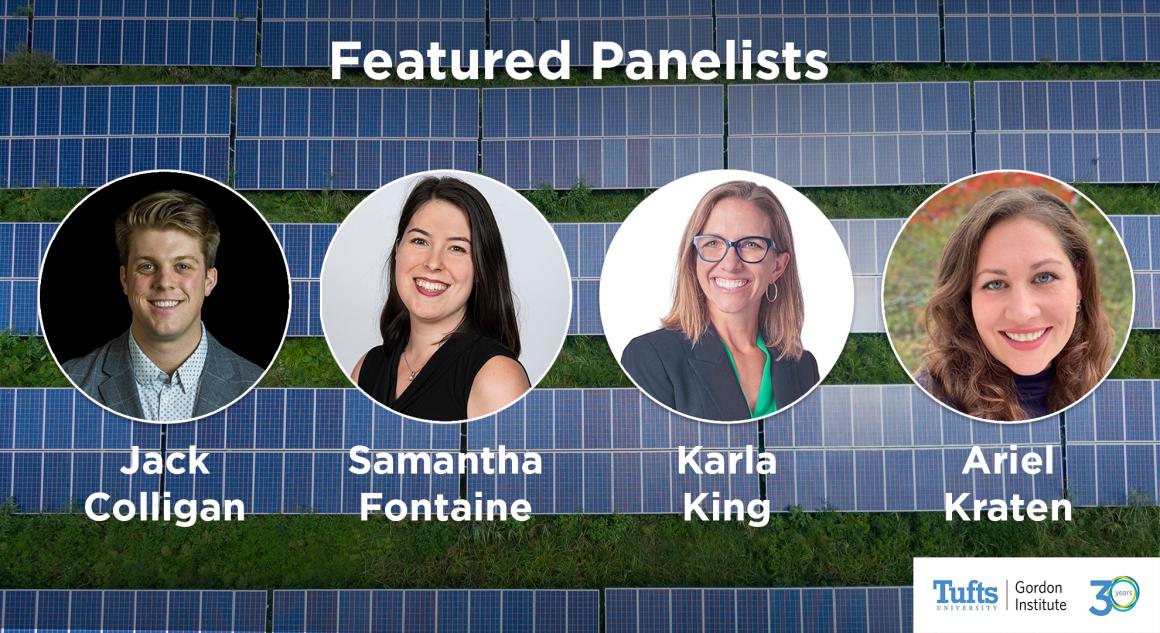In recent years, businesses and investors have embraced ESG, or environment, social, and corporate governance, at an accelerating pace. ESG approaches to operations seek to manage these sustainability-related issues, but have historically been sidelined by the pressures of traditional finance. Faced with an alphabet soup of sustainability standards and reporting frameworks, business leaders must think strategically to balance the demands of shareholders and other stakeholders with the goals of ESG. Industry experts in sustainability, social impact, and equity gathered at Tufts Gordon Institute’s most recent Keynote Debate, seeking to answer the question: Can you still be profitable and save the planet?
Early into the debate, panelists highlighted two key factors in organizational change in response to issues of ESG: systemic buy-in and flexibility. Samantha Fontaine, Director of Technology for Social Impact at Analog Devices, Inc., noted that the culture around ESG can change when “we have buy-in from the leadership level through every role in an organization.” An organization is best able to find solutions for ESG-related challenges when stakeholders at every level are aligned in their mission. To succeed in making ESG a priority, leadership needs iterative input from the members of the organization, and the members need responsive support from leadership.
Jack Colligan, Cofounder and Director of Fulcrum Consulting Group, pointed out that what that buy-in looks like–and what “ESG issues” to begin with look like–varies from organization to organization. “Every industry and business is unique,” he explained, “with unique issues that matter to their operations.” For example, even though the food and apparel industries are both concerned with the use of chemicals in their operations, the former may be investigating alternatives to pesticides while the latter may be more concerned with dyes. With these unique factors at play, the flexibility to test out and iterate upon different solutions is of the utmost importance for tackling ESG issues.
But what about at the consumer level? What role does someone outside of a business play in the operations of that business? If ESG issues are really so complex and variable, do consumers need to become sustainability experts themselves?
Ariel Kraten, Cofounder of apparel industry sustainability accelerator GoBlu International, suggested consumers can support the goals of ESG simply by demonstrating that they care. “Consumers can start making an impact by asking questions, even if they aren’t experts in the field,” she argued. Businesses have their eyes on many consumer data points, from straightforward sales trends to more complex metrics like customer queries. If a business sees a growing number of consumers asking about ESG issues, they will feel more compelled to address those issues and clearly share how they are doing so. In short, explained Kraten, if you don’t know–ask!
Tying all of these facets of ESG together is an overarching purpose. Although so often framed as “saving the planet,” Karla King, Executive Vice President of Sustainability and Resiliency at AEI Consultants, encouraged debate watchers to rethink that purpose. “ESG issues are about much more than ‘saving the planet,’” she said. “This is about our experience on our planet.” ESG has the potential to impact the lives of every individual. Much more than saving the planet, ESG can be about creating a more sustainable and equity experience for every person who lives on this planet.
While there remain many questions to be tackled regarding ESG issues, this debate highlighted that there are many different parties capable of providing answers. Each individual at each organization, along with every consumer, can bring their valuable insight to the table. As our panelists showed, everyone can contribute to creating a more sustainable and equitable world for all.

